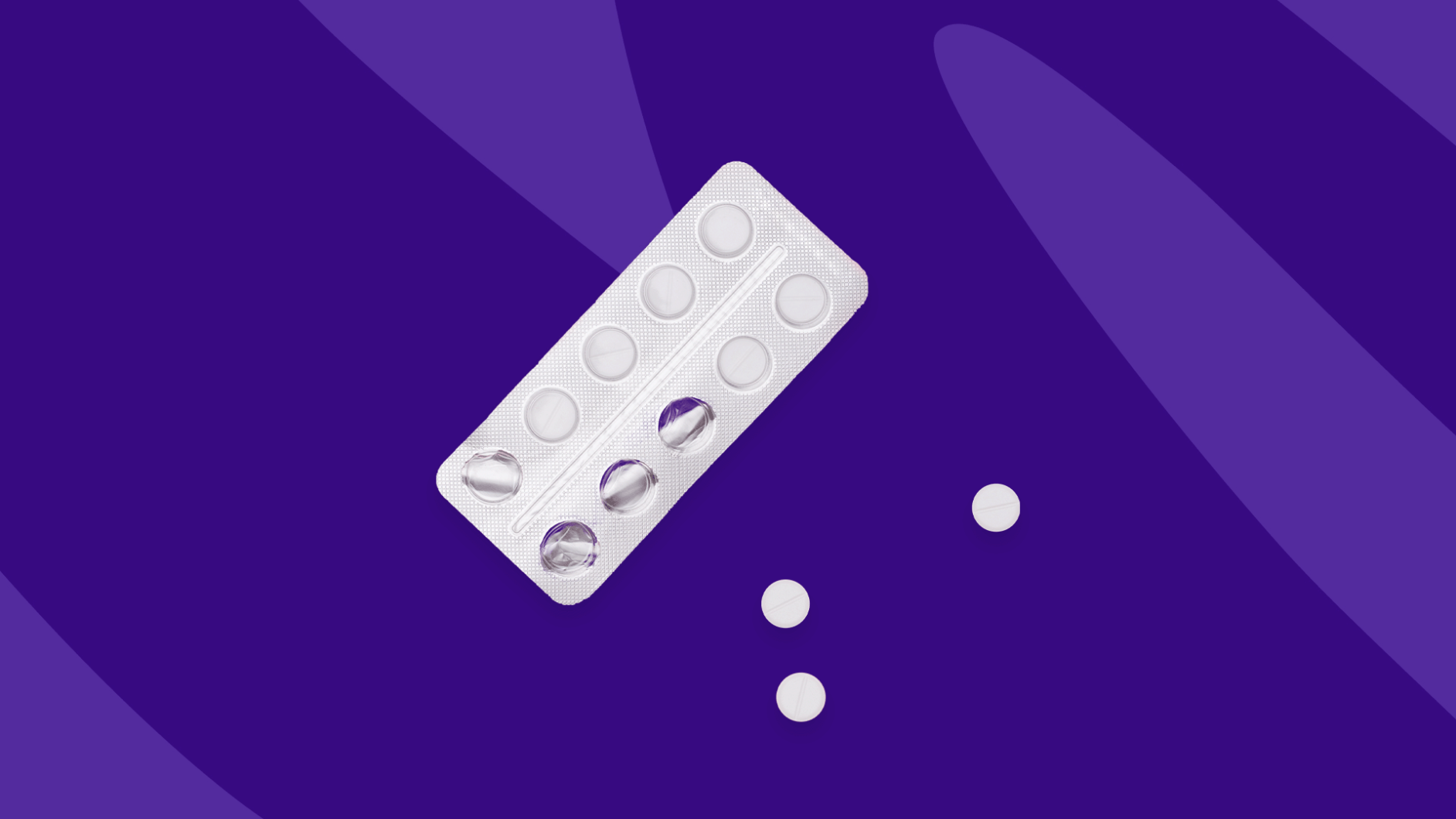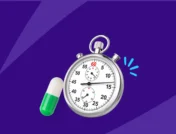If you have stubborn hay fever or seasonal allergies that aren’t responsive to other over-the-counter antihistamines, you may find success with Zyrtec. Along with Xyzal (levocetirizine), it is the most powerful OTC antihistamine allergy medication available. The drug works effectively against allergy symptoms like itchy or watery eyes, sneezing, a runny nose, and an itchy nose or throat. However, stopping the drug after long-term use—think months to years—can cause unpleasant withdrawal symptoms.
According to reports submitted to the U.S. Food and Drug Administration (FDA), the most commonly experienced symptom from Zyrtec withdrawal is unbearable itching (pruritus) that happens within a couple of days of stopping the medication. Ranging in intensity from mild to severe, Zyrtec withdrawal itching can be uncomfortable, to say the least.
If you’ve recently stopped taking this antihistamine, here’s what you can do for Zyrtec withdrawal relief.
RELATED: Xyzal vs. Zyrtec: Which allergy medicine is better?
Withdrawal symptoms of Zyrtec
Zyrtec (and its generic cetirizine) is an OTC antihistamine that relieves sneezing, runny nose, and watery eyes associated with allergic rhinitis (seasonal or perennial allergies) caused by allergens like dust mites, mold, and pollen. Common side effects that occur in people who take Zyrtec include sleepiness, fatigue, and dry mouth, says Kelly Johnson-Arbor, MD, a medical toxicologist and medical director at the National Capital Poison Center.
Although rare, there are reports of people experiencing withdrawal symptoms, including severe itching, after discontinuing use of Zyrtec, says Dr. Johnson-Arbor. These patients had taken Zyrtec continuously (daily) for several months to years, she says.
According to Jill Barat, Pharm.D., a compounding pharmacist at Pharmedico in Sarasota, Florida, symptoms of Zyrtec withdrawal include:
- Intense itching
- Hives
- Vivid dreams
- Headaches
People who have experienced itching after discontinuation of Zyrtec often report that the itching is different than their symptoms of seasonal allergies, says Dr. Johnson-Arbor. Itching from Zyrtec withdrawal can be severe, occurring all over the body and even as a moving itch that travels from place to place, making it difficult to relieve, says. Dr. Barat. Some people report that the itching is so bad, they end up damaging their skin from all the scratching, and/or they are unable to sleep due to the discomfort, she adds.
RELATED: What is Zyrtec Allergy: Uses, Warnings & Interactions
How long does Zyrtec withdrawal last?
The exact timeline of Zyrtec withdrawal and which symptoms patients experience varies on a case-by-case basis, says Dr. Barat. “Some people may not notice anything, while others may be driven to start back on the medication just to avoid these symptoms,” she says, adding that the severity of withdrawal symptoms may be correlated with how long the person was using the drug.
According to a 2019 Therapeutic Advances in Drug Safety report, the average start of itching after stopping Zyrtec is about two days. That said, anytime between half a day and five days after discontinuation of the drug has been reported, says Dr. Barat. In general, Zyrtec withdrawal occurs in three phases:
- Phase One: Symptoms typically begin within three days of the last dose.
- Phase Two: Symptoms peak between days three to five.
- Phase Three: Symptoms resolve in about seven days.
Withdrawal symptoms after stopping Zyrtec are rarely reported, so most people do not need to wean off of the drug, says Dr. Johnson-Arbor. But if you’ve been taking daily Zyrtec for long periods of time (months to years), you might want to consider discontinuing the medication by slowly lowering your daily dose to avoid experiencing withdrawal symptoms.
In short, Zyrtec withdrawal itchiness can be uncomfortable, but it is not life-threatening, Dr. Johnson-Arbor says. In some cases, prescription medications may be needed to reduce the severity of Zyrtec withdrawal symptoms.
RELATED: Is it safe to take an antihistamine every day?
How to get over Zyrtec withdrawal
For many people living with allergies, especially those who take Zyrtec for short periods of time, discontinuing the use of Zyrtec won’t cause withdrawal, says Dr. Johnson-Arbor. The Zyrtec product label states that Zyrtec is not associated with abuse or dependence, so most people can stop the medication cold turkey without experiencing withdrawal.
But if you’ve been on Zyrtec long-term and you’re worried about stopping cold turkey, slowly tapering your dose down over time may be a good way to avoid withdrawal, says Dr. Barat. She adds that a specific schedule for weaning from the medication, or a structured taper, is not currently written in the drug information for Zyrtec, so be sure to consult with a pharmacist, allergist, or similar healthcare professional for advice.
For individuals who are experiencing Zyrtec withdrawal symptoms, taking a short course of corticosteroids may provide some relief, Dr. Barat says.
Alternatives to Zyrtec
If you’re worried about Zyrtec withdrawal, the antihistamines Allegra and Claritin, which are in the same class of drugs as Zyrtec, may be a better option for you, advises Dr. Barat. Benadryl (diphenhydramine), a first-generation antihistamine, is another option—you shouldn’t experience itchy withdrawal issues, but it does cause more drowsiness than second-generation antihistamines such as Allegra (fexofenadine), Claritin (loratadine), and Zyrtec (cetirizine), says Dr. Barat. That’s why it’s best to take Benadryl at night. (First-generation antihistamines cross the blood-brain barrier potentially causing drowsiness, while second-generation antihistamines typically do not). Benadryl can also have its own withdrawal syndrome.
If you experience unexpected signs or symptoms after using an antihistamine such as Zyrtec or Benadryl, contact Poison Control at poison.org or 1-800-222-1222. Both options are free of charge and are available 24 hours a day.
Natural alternatives
If you’re looking for a natural alternative to Zyrtec or other antihistamine medications, consider the use of saline nasal sprays. “These sprays can thin nasal mucous and help remove allergens from the nose and may help relieve the signs and symptoms of seasonal allergies,” Dr. Johnson-Arbor says.
Dietary supplements may also be useful in alleviating allergy symptoms. For example, one older study found that taking a supplement containing the plant butterbur four times a day was comparable to taking a daily dose of cetirizine among patients with seasonal allergies.
Dr. Barat says her pharmacy customers have shared success stories about the natural antihistamine supplement D-Hist by Ortho Molecular. “Some people buy many bottles at a time during allergy season to take every day as an antihistamine alternative,” she says. The ingredients in D-Hist are quercetin, stinging nettle, bromelain (from pineapple), and N-acetyl-L-cysteine. Quercetin, bromelain, and stinging nettle are all known for their anti-allergenic properties, and N-acetyl-L-cysteine decreases the body’s inflammatory response.
Not everyone who stops taking Zyrtec will experience withdrawal symptoms, says Dr. Barat. But if you do experience symptoms like relentless itching after ceasing the medication, reach out to your healthcare provider for advice.
READ NEXT: 9 ways to treat seasonal allergies
Sources
- Second-generation antihistamines: actions and efficacy in the management of allergic disorders, Drugs (2005)
- Pruritus after discontinuation of cetirizine, Therapeutic Advances in Drug Safety (2019)
- Cetirizine, StatPearls (2023)
- Antihistamine Withdrawal: Are You Addicted to Your Allergy Medication? Wellness Retreat Recovery Center
- Antihistamines, The Cleveland Clinic (2020)
- Chronic diphenhydramine abuse and withdrawal, Neurology Clinical Practice (2017)











